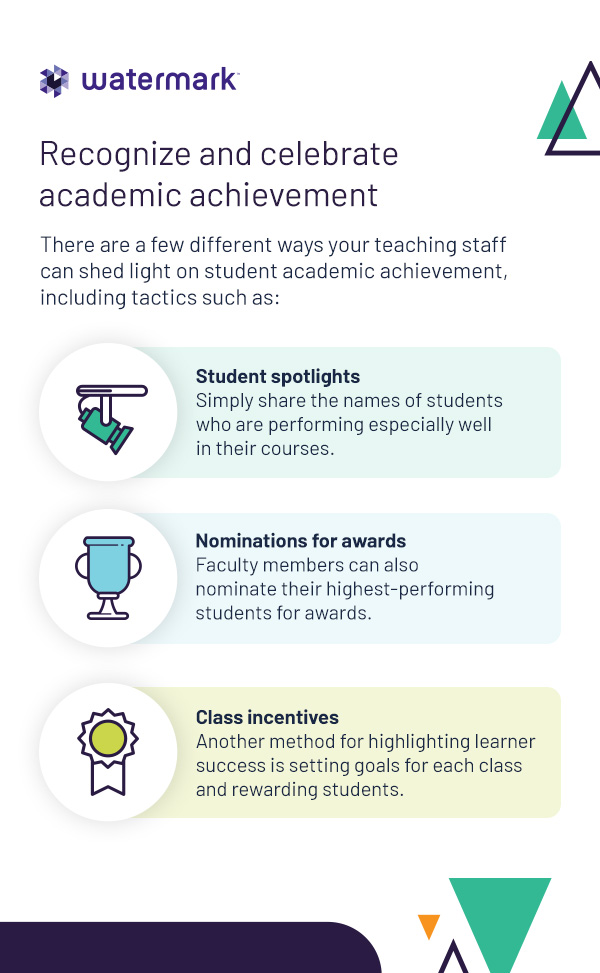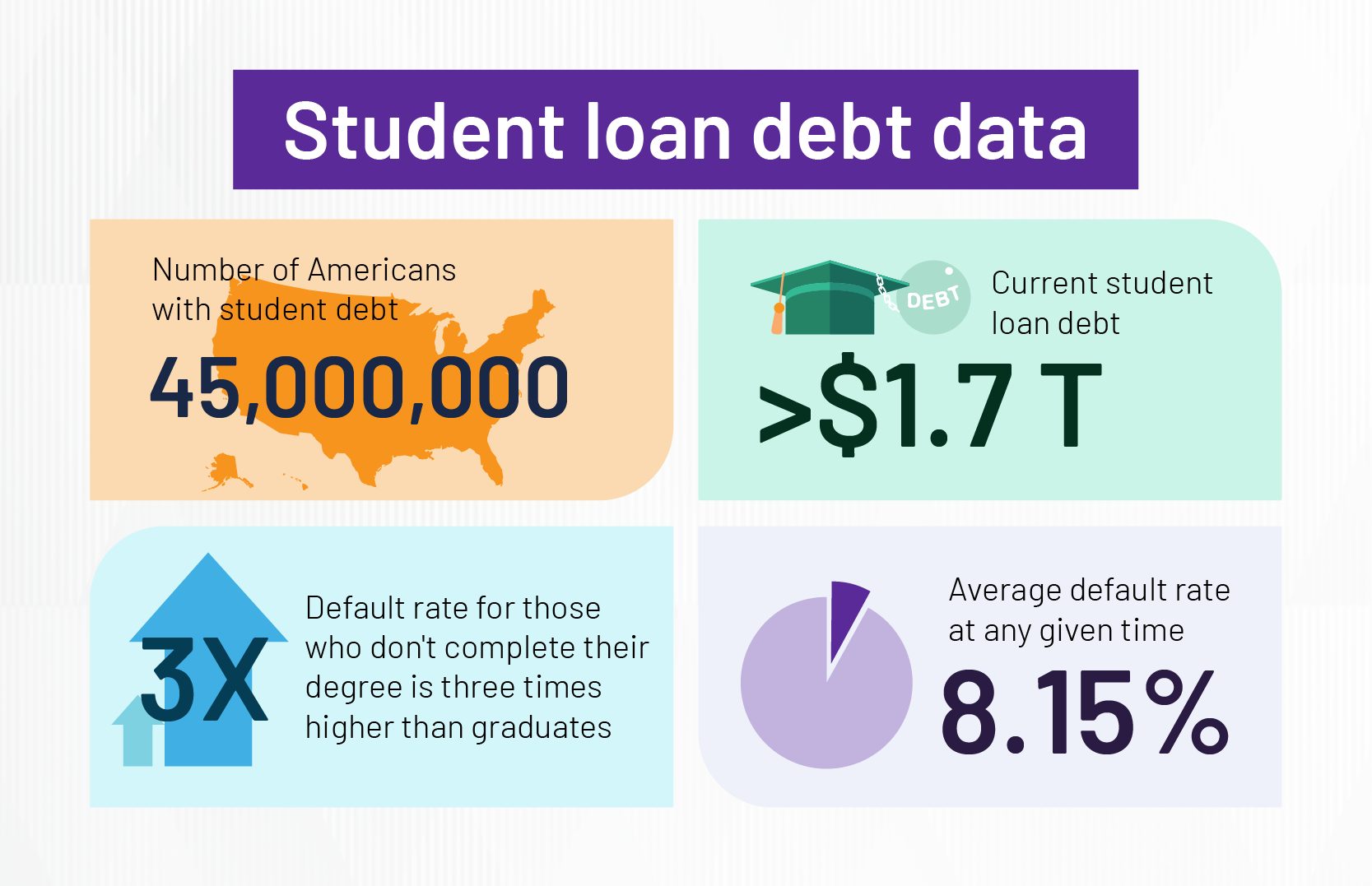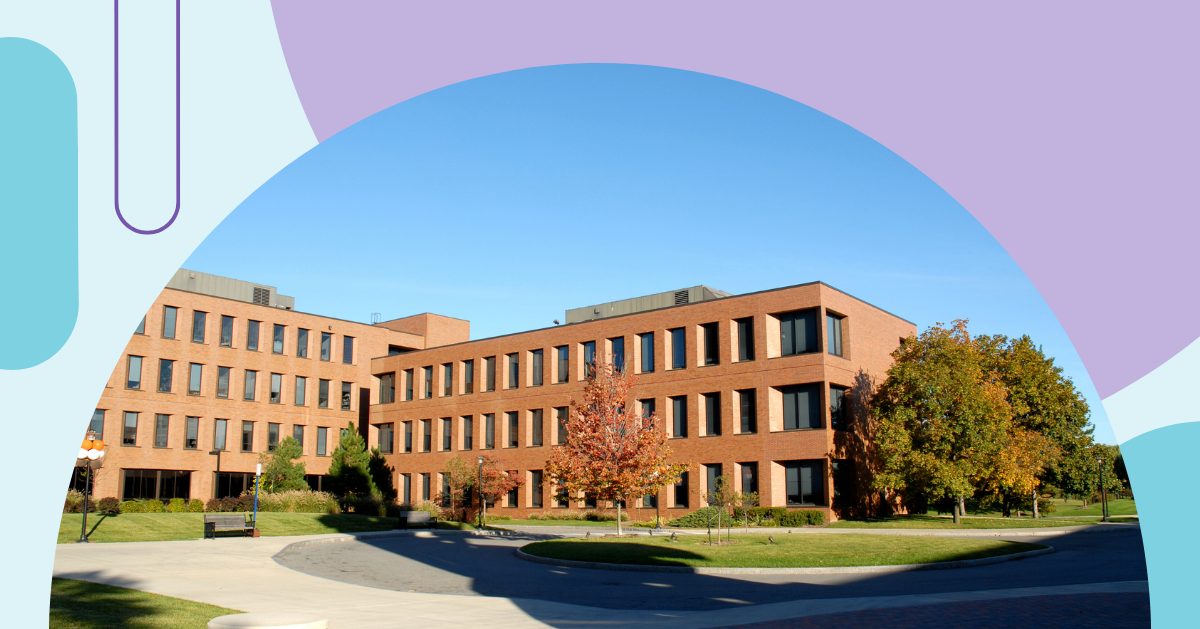
The end-of-the-semester rush has proven to be a challenging time for students and staff alike. Luckily, there are some steps your college or university’s teaching staff can take to manage stress levels, provide the necessary support for students, and remain grounded during this very demanding period.
Your institution can use these helpful tips to help faculty succeed in this hectic time of year.
Why is the end of the semester challenging?
The end of the semester or school year can be a stressful time for your faculty members. Change is right around the corner. Students tend to be especially eager and antsy, as the semester typically ends just before the holidays or summer break. Harnessing learners’ attention and supporting a successful end to coursework requires strategy on the part of your faculty.
At the end of the semester, students tend to have more work and added stress from final projects and exams. Courses often get increasingly challenging as time goes on, so having disengaged learners at the end of the class can be particularly damaging to their overall performance. Instructors can start feeling a little worn down trying to juggle their classes and rein in student engagement.
The conclusion of a course is also crunch time for students and staff. Learners must ensure they complete their coursework, prepare for their assessments, and acquire the knowledge they need to succeed in the next courses in their academic program. This creates pressure and can easily overwhelm busy students, impacting their attentiveness and ability to manage their work.
Your college or university’s teaching staff has a duty to support students throughout this time and set them up for success. After all, the end of the semester can determine whether a student can graduate on time with the skills they need to enter the workforce.
12 faculty tips for the end of the semester
The semester’s end can weigh heavily on your teaching staff. Between fitting in the remainder of the curriculum, managing stressed students, and providing structure during a traditionally hectic time, they have a lot on their plates.
Check out these helpful end-of-the-semester faculty tips to support the performance and success of both learners and instructors:
1. Set clear expectations
One of the best ways for teaching faculty to harness control and productivity at the end of a course is to set clear expectations with their students. Your teaching staff should clearly communicate upcoming deadlines and guidelines for any remaining assignments. They should also reinforce the importance of staying highly engaged throughout every phase of the semester.
Instructors can benefit from revisiting their courses’ initial learning objectives, ensuring they have adequately covered the key concepts and have plenty of time for what materials are left. Their students must have the resources they need to be well-prepared for the final assignments and assessments.
By reviewing the main learning objectives and class progression, your faculty members can determine exactly what they expect of their students throughout the remainder of their courses. Clear communication is key, ensuring learners and instructors are always on the same page.
2. Capitalize on technology and data software
Another helpful tactic for faculty members looking to conquer the end of the semester is to leverage technology.
Data software is an incredible tool for providing students with personalized learning experiences based on their individual needs and past performance. Your instructors can use technology to provide students with the learning experiences that resonate most with them and help them achieve academic success.
These solutions allow for real-time monitoring and evaluation of student progress. Your teaching staff can consult these tools to identify struggling students and provide intervention before time runs short.
Data software also enables your faculty members to use analytics on course effectiveness, student engagement, and learning outcomes to inform important end-of-semester decision-making. They can harness these insights to improve teaching methods and strive toward improved learner engagement.
Higher education software solutions can also streamline the process of delivering individualized feedback, enabling your instructors to provide their input efficiently and save valuable time when there is little to spare.
3. Recognize and celebrate academic achievement

Your college or university’s teaching faculty can also use recognition as a tool to boost student motivation and confidence throughout the semester. Instructors can encourage academic goal-setting to inspire their learners to strive toward success in their courses.
When students reach their goals, excel in course content, or go above and beyond to perform well, your faculty should highlight their hard work. There are a few different ways your teaching staff can shed light on student academic achievement, including tactics such as:
- Student spotlights: Instructors can nominate a student of the month, showcase their work in an exhibition, or simply share the names of students who are performing especially well in their courses.
- Nominations for awards: Faculty members can also nominate their highest-performing students for awards, recognition on campus, or other special honors to inspire hard work.
- Class incentives: Another method for highlighting learner success is setting goals for each class and rewarding students if they reach the specified achievement.
By celebrating students’ successes, your institution’s instructors can inspire hard work, boost morale, and keep students engaged.
4. Incorporate interactive activities
At the end of the semester, instructors can benefit from planning interactive learning activities for their students.
Since learners tend to be slightly less engaged at this point in the year, having hands-on exercises, discussions, and projects can help them find new motivation and apply what they’ve learned from class. Interactive activities encourage active participation and critical thinking. The more interactive and interesting these activities are, the more engaged students must be.
Consider finding ways to bring your students real-world experiences that they can carry with them into the workforce. Demonstrating how course materials apply to real life is an excellent way to transition weary students into engaged, excited learners.
Encourage your teaching staff to review their course curricula and assess their end-of-the-semester plans to see if there are opportunities to incorporate more riveting activities.
5. Use time blocking and breaks to increase focus
Another tip to help support end-of-the-semester productivity is using time management techniques like time blocking to support optimal student focus during class.
Time blocking involves setting a timer for specific tasks and using that time to dedicate 100% of your focus to that activity. Thanks to social media and technology, many students have shorter attention spans and struggle to focus for extended periods of time. Your teaching staff can benefit from dividing up class time into smaller segments to improve attention.

Taking breaks is also very important. According to expert studies, even a brief break lasting fewer than 10 minutes can effectively decrease mental fatigue and boost vigor.
By incorporating small breaks into their class periods, your faculty can give their students the space to refocus and ultimately get more out of every class.
6. Practice self-care
The end of the semester can be busy and overwhelming for your teaching staff. Encourage them to prioritize self-care and practice stress-reducing techniques during this time. Self-care is essential for the following:
- Combatting burnout
- Enhancing mental health
- Supporting energy levels
- Improving resilience
- Promoting work-life balance
When your teaching staff takes steps to maintain their well-being, they will feel their best and be able to serve their students better. They can model this behavior for their students, demonstrating the importance of taking great care of yourself to support better achievement and performance.
Your faculty should encourage their students to practice self-care during this time to help them manage their stress levels, stay grounded, and balance their school work and social life. Your institution will benefit from having both students and faculty members take time for themselves to recharge.
7. Be flexible and understanding
Since the conclusion of the semester tends to feel hectic and both students and staff are more likely to feel burnt out, remind your teaching staff to be flexible. Every student has unique circumstances and learning styles. When your faculty accommodates their learners’ needs, they can help create a welcoming and manageable educational environment that effectively reduces stress and supports better performance.
Instructors must account for unexpected situations, from personal emergencies to technical issues, that can impact important deadlines at the end of the semester.
However, your institution’s teaching staff must plan in advance, understanding that unavoidable hiccups may arise that will impact their students and the academic calendar throughout a course. To offer flexibility, teaching staff must start planning in advance, leaving wiggle room in each curriculum and preparing to adapt to last-minute changes.
8. Monitor progress and provide feedback
Another helpful tip for your college or university’s teaching staff is to monitor student progress throughout the semester. Your faculty can utilize data management tools to track performance metrics and identify students who are potentially struggling with their coursework. Early intervention is key.
If your faculty members wait until the end of the course to gauge student achievement, it may be too late to help students get on track and obtain the desired learning outcomes from the semester. Instead of piling onto the end-of-the-year stress, monitor learner progress and provide feedback throughout the course. Offering frequent, constructive feedback can help students stay motivated and determine what they need to succeed and ultimately pass the class.
Meeting with students one-on-one or sharing an update at the midpoint of each semester can be highly beneficial in helping student assess their progress and prepare for the end of the course.
9. Provide additional resources and support

One way your college or university’s faculty members can help reduce student fatigue and stress is by providing additional support and resources to help them with their final preparations. Some examples of different ways they can offer help include:
- Office hours: Extending office hours or freeing up blocks for learners to come and go with their questions can give students a better opportunity to get the attention and guidance they need to succeed.
- Review sessions: Hosting review and study sessions is a great way to ensure students are adequately prepared for their final assessments.
- Online resources: While office hours and review sessions are excellent, not all students will be able to make time for those activities. Sharing online resources allows faculty members to accommodate busy learners who are also juggling work, extracurriculars, and other courses.
10. Lean on faculty peers
Having a support system is integral to the success and well-being of your higher education institution’s teaching staff. Encourage your faculty to lean on each other and share their experiences during this time. Mentorship programs or faculty events can help promote this type of connection. Consider inviting your staff to special lunches or gatherings where they can explain their frustrations, provide insight, share strategies, and gain valuable advice on handling their semester challenges.
Creating a sense of solidarity among your teaching faculty is a fantastic way to ensure they do not feel alone or overwhelmed. Ask your staff to rely on each other for the support and help they need throughout the year, and especially during more difficult times, like the end of the semester.
11. Encourage students to reflect
Reflection is essential for finding opportunities for growth. Your teaching staff should ask their students to reflect on their performance and coursework from the semester. Encourage learners to evaluate their academic journey. They should think back on how much they’ve grown and learned throughout the course and if there are areas where they struggled to meet the standards they set for themselves.
In this reflection, students can ensure they’ve grasped the foundational understanding they need to pass the final assessment and the course. They must also assess whether or not they’ve gained the knowledge they need to thrive in the next class in their degree program.
Taking the time to reflect mid-semester and again closer to the end of the course can help students prepare themselves in case they need additional support or tutoring to pass. You wouldn’t want them to realize they need help when it is too late in the semester.
12. Assess teaching practices from the semester
The final tip for easing the challenges of the semester’s end is to encourage your teaching staff to reflect on their own performance throughout the year. In taking some time to assess their teaching strategies, they can determine what worked well and what areas they could improve for next year.
Your teaching faculty can leverage data to determine a holistic picture of their work throughout the semester, as well as how their students performed in each class. In evaluating the effectiveness of their practices, your staff can identify ways to improve, evolve, and refine their methods in a way that supports an easier end of the semester and sets both the instructor and their learners up for success.
Request a demo of Watermark Faculty Success today
If your higher education institution is looking to maximize faculty performance throughout the semester, turn to the solutions from Watermark.
With Watermark Faculty Success, your institution has access to data about faculty performance on-demand in a central hub. Our faculty activity reporting software is part of our robust Educational Impact Suite and gives your college or university greater insight into faculty credentials and development. You can leverage these tools to foster instructor success and drive professional growth.
Are you interested in seeing Watermark’s higher education software in action? Request a demo online to get started today!
















































































































































































































































































































































































































